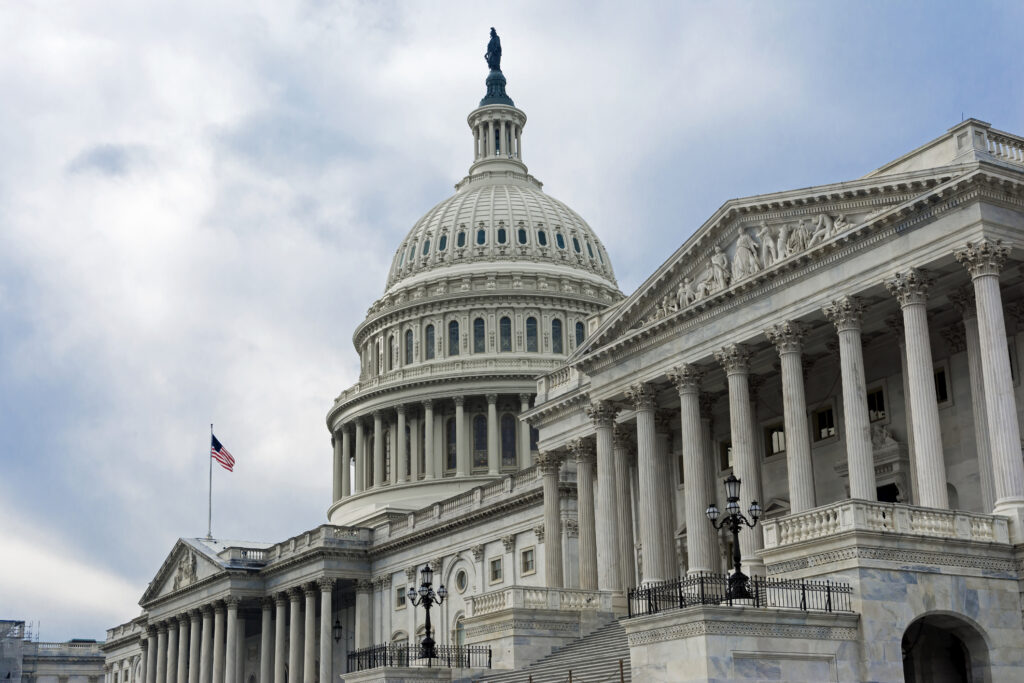Employment Law Report
5 Changes for Employers to Anticipate from the Second Trump Administration

By: Emma Mansberg Weintraub
With a new presidential administration, comes potentially widespread shifts in employment policies. While President Trump is still finalizing his cabinet picks and readying to take office, employers can begin to anticipate and prepare for the variety of multifaceted changes a second Trump Administration guarantees.
Here are five potential shifts in employment law to expect and prepare for as President Trump takes office:
1. The NLRB: New Leadership and New Decisions
After President Trump’s first term, President Biden quickly replaced President Trump’s appointed NLRB General Counsel (GC). We can expect a similar replacement process after President Trump’s inauguration. The NLRB GC serves as the NLRB’s top prosecutor, shaping NLRB policies through memoranda provided to the Board addressing a variety of issues ranging from the scope of damages in unfair labor proceedings to how the Board should address restrictive covenants. While the new GC has not been announced, employers should anticipate a pro-employer GC committed to rolling back many of the memoranda issued under the Biden-appointed GC.
Employers should also be prepared for a shift in the composition of the Board. While the Board currently has a Democratic majority, the Board will likely swing to a Republican majority in the next four years. A shift in composition as a result of Trump appointees will usher in new decisions. Looking to Biden-era policies facing the most potential for being struck down, the decisions of a Republican-controlled NLRB are predicted to include reverting to the NLRB’s less stringent standards for assessing the legality of an employer’s workplace rules, returning to a more expansive definition of what constitutes an independent contractor, reversing rules for union elections that require strict timelines and ensure quicker processes, and voiding more permissive standards for the establishment of bargaining units.
While the appointment of a new GC has not been announced and a Republican-majority board is not set in stone, employers can expect an NLRB more focused on disseminating “pro-employer” decisions.
2. Immigration and Employment
Based on the acts of the first Trump administration alongside the promises made on the 2024 campaign trail, employers should expect and prepare for stricter immigration standards to intersect with their employment practices. Employers will likely see more rigorous processes for H-1B visas, the visa program for international skilled workers. Stricter standards could result in increased denials of the visas and longer processing times.
Most notably for immigration and employment law, President Trump’s 2024 campaign promised mass deportations. The effect of this on employers will arise in the form of I-9 audits to ensure employer compliance with immigration laws. The first Trump administration instituted numerous surprise workplace raids both to catch employers engaged in acts of unlawful immigration and to detain unauthorized employees. President Trump’s newly appointed “border czar,” Tom Homan, is poised to continue these raids going into the second Trump Administration. Homan has also suggested that all employers be legally required to use E-Verify, an online federal resource that confirms the eligibility of a potential employee.[1]
Before these anticipated changes take effect, the best action an employer can take to prepare for these stricter standards is to ensure I-9 compliance for all employees.
3. The Equal Employment Opportunity Commission
President Trump is expected to appoint Andrea Lucas, who presently serves as the only Republican on the EEOC, as the Commission’s new chair. Like the NLRB, President Trump will also appoint a new GC. Currently, the EEOC has a Democratic majority; this will limit the ability of Trump appointees to usher in significant policy changes within the EEOC. However, the newly appointed GC can redirect the Commission’s litigation strategies.
While the Democratic majority may slow the implementation of President Trump’s policy goals, the Trump Administration has nonetheless signaled intentions to rollback DEI policies and protections for LGBTQ+ employees. Recently, the EEOC altered its workplace harassment guidelines, including within the definition of sex-based discrimination the intentional misuse of pronouns that are inconsistent with one’s noted gender identity as well as denying bathroom access to LGBTQ+ individuals. Notably, Andrea Lucas, the likely new chair for the EEOC, opposed this guideline. Further, Andrea Lucas has also expressed disagreement with the EEOC’s interpretation of the Pregnant Workers Fairness Act (PWFA), which has been used by employers to provide travel benefits to employees seeking abortions in the wake of the Supreme Court overturning Roe v. Wade as well as providing for menopause and infertility care to employees.
Until the likely change of the board’s composition in 2026, these policies may remain in place. However, it will be vital for employers to follow changes within the EEOC as many of President Trump’s campaign promises centered policies created and guided by EEOC decisions.
4. Diversity, Equity, and Inclusion
President Trump’s outspoken opposition to DEI initiatives creates the potential for increased efforts to address DEI policies through litigation. While the EEOC has guided that DEI policies do not violate Title VII of the Civil Rights Act, there will likely be further challenges to such policies. In Students for Fair Admissions, Inc. v. Harvard, the Supreme Court recently struck down the use of DEI policies in the context of affirmative action in colleges. DEI initiatives in the corporate context have yet to be challenged. However, Stephen Miller, recently named as the Deputy Chief of Policy for the new administration, has filed a number of letters with the EEOC, alleging that corporate DEI programs discriminate against white men.[2]
Based on the many anti-DEI advocates who will have a role in this second Trump Administration, DEI programs instituted by corporate employers will become a growing point of contention in the national conversation. Although there are no definite changes that will immediately alter employer DEI practices, employers will benefit from seeking counsel as to whether their DEI programs comply with current law.
5. The Department of Labor
Common to all regulatory bodies, a new presidential administration presents the potential rollback of numerous regulations and policies; this will be particularly apparent through the actions of the Department of Labor. Many regulations pushed through under the Biden Administration are likely to be repealed or unenforced by whomever President Trump selects to lead the Department of Labor. Notable changes will likely include simplifying employers’ ability to classify workers as independent contractors rather than employees and collaboration between the Department of Labor and other agencies to deport undocumented workers. Additionally, under President Biden, the Department of Labor increased the threshold for overtime eligibility from $35,568 to $58,656. While a federal district court in Texas recently struck down this expansion of overtime pay eligibility, continuance of this expansion will face further obstacles under this new Trump Administration.
While a new presidency may bring about unforeseeable shifts in employment law, these five takeaways provide a strong foundation for employers to prepare for impending change post-inauguration day. Should you or another member of your business have any questions about the impact of these policy shifts on current and future employment practices, please contact a Wyatt lawyer. In addition, be sure to revisit the Wyatt Employment Law Report blog for further developments and updates as well as other employment law topics.
[1] See generally Mike Levine, ‘Shock and Awe’: What Trump ‘Border Czar’ Tom Homan Has Said He Plans to Do Starting Day 1, ABC News (Nov. 18, 2024), https://abcnews.go.com/US/shock-awe-trump-border-czar-tom-homan-plans/story?id=115972346.
[2] See generally Rebecca Khar, Trump EEOC to Lock into Power Struggle with Democratic Majority, Bloomberg Law, (Nov. 8, 2024), https://news.bloomberglaw.com/daily-labor-report/trump-eeoc-to-lock-into-power-struggle-with-democratic-majority.
